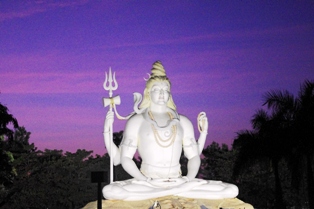Fight for Freedom of Expression:
This is one of the
most important human rights in the modern society but the fight for this right
started in late 17th century by Voltaire, the French historian, philosopher
famous for his wit and advocacies on civil liberties. The fight for the right
caught up with the aesthetic movement, represented by the school of William
Morris and Dante Gabriel Rosetti in 1860-1900. One of the most influential
authors of this movement was Oscar Wilde. He was one of the flamboyant and
witty playwright who penned short
stories, plays, poetry's and his only novel- The picture of Dorian Gray.
The novel first
appeared as a lead story in Lippincots monthly magazine on June 20th
1890. The Magazine’s editor changed some 500 words of the text without
intimating Wilde, as he feared the story indecent to publish. Even then the
story was
greeted with outrage by British reviewers, some of whom suggested that Wilde
should be prosecuted on moral grounds, leading Wilde to defend the novel
aggressively in letters to the British press. Wilde later revised the story for
book publication, making substantial alterations, deleting controversial
passages, adding new chapters and including an aphoristic Preface which has
since become famous in its own right. he was In 1894, Wilde was
imprisoned for two years for leading a very unconventional and unethical life
style, which was not appreciated by British Church and its rein during
Victorian era.
On 19 February Khomeini's office replied
The imperialist foreign media falsely alleged that the officials of the Islamic Republic have said the sentence of death on the author of The Satanic Verses will be retracted if he repents. Imam Khomeini has said:
This is denied 100%. Even if Salman Rushdie repents and become the most pious man of all time, it is incumbent on every Muslim to employ everything he has got, his life and wealth, to send him to Hell.
Thus Joseph Anton was born and this is how a memoir by Rushdie is penned during his hiding years.
Another person is Ayaan
Hisri Ali, a Somali-Dutch activist and author of the book Infidel and screenplay
writer for the movie Submission, led to death threats from the guardian’s of
Islam religion. A film produced by Theo van Gogh,
which criticized the treatment of women in Islamic society. Juxtaposed with
passages from the Qur'an were scenes of actresses portraying Muslim women
suffering abuse. The film also features an actress dressed in a
semi-transparent burqa who has texts from the Qur'an written on her
skin. The texts are among those often interpreted as justifying the subjugation
of women. The film's release sparked much furore, and Mohammed Bouyeri, a
member of the Hofstad Group, murdered Van Gogh in an Amsterdam street on 2
November 2004. A letter pinned to Van Gogh's body with a knife was primarily a
death threat to Hirsi Ali.
On similar agenda
for women rights in Islamic society Taslima Nasreen, a Bangladeshi author was
once again banned for her book Lajja, in 1993 ,Amar Meybela in 1999, and Uttal
Hawa in 2002,by Government of Bangladesh. As she was stamped for writing against
the Islamic principles.
The Malaysian court thankfully after due
consideration has lifted the ban on Irshad Manji’s book "Allah, Kebebasan
dan Cinta".
Thus this fight for the
freedom of expression continues even in a modern society of today’s times.



Comments
Post a Comment